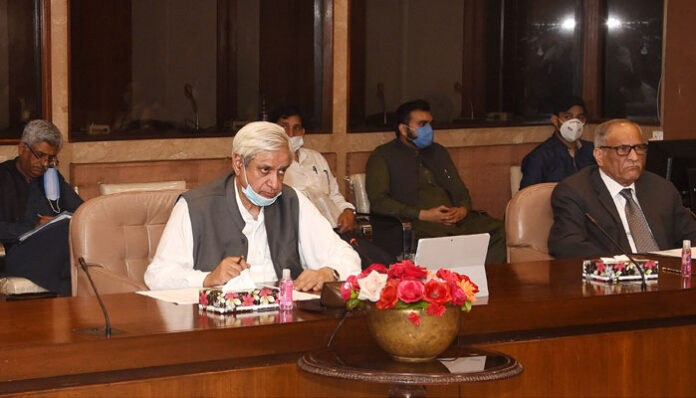ISLAMABAD: Giving a justification for the declining yield of major crops, particularly wheat and cotton, National Food Security and Research Minister Syed Fakhr Imam has said the country “lacks the required expertise” to develop the agriculture sector.
Speaking at the commemoration of World Food Day on Friday, Fakhr Imam emphasized, “We have to focus on our capabilities and realize our responsibilities as we have been unable to provide the nutrition to our people that we should have.”
He noted that the agriculture sector remained totally neglected for the past 25 years, and that no measures were taken for the betterment of the people.
Fakhr Imam said that the present government was chalking out policies for the development of the agriculture sector, as it fully realized the importance of this sector in ensuring food security.
He said the government was focusing on sustained supply of key inputs like fertilizers, seed and pesticides at rational prices in order to create an environment where farmers get a fair return of their produce.
Speaking on the occasion, Pakistan Agricultural Research Centre (PARC) Chairman Dr Muhammad Azeem Khan said, “We have compromised agriculture sector’s performance due to vagaries of climate change, which adversely effects food security.”
He claimed that PARC has been successfully carrying out researches and was now promoting foods that have high value of quality protein and rich source of minerals and vitamins like tilapia fish, soybean and its products, and food legumes dairy products.
Country Representative of the Food and Agriculture Organization (FAO) of United Nations Mina Dowlatchahi highlighted the importance of reliable data and information to support targeted policies and collective action by government, civil society and private sector to address food insecurity and malnutrition in Pakistan, at a challenging time amid Covid-19 pandemic impacts, natural hazards shocks and trans-boundary pests.
“Smallholders and off-farm agriculture workers, women and men, need to be able to access financial resources, knowledge, technology and innovation to produce and move ; farm to fork’ more, safer, and diversified food to improve livelihoods and diets of the people of Pakistan.”
‘SUFFICIENT QUANTITY OF WHEAT’
Meanwhile, the Ministry of national Food Security & Research said on Friday that Pakistan was now “wheat secured till the next harvest”, adding that claims of excessive shortage were “fallacious”, and that 4.883 million metric tonnes of wheat was currently available with the public sector.
“The provincial crop reporting service has informed the ministry that there was a shortage of 1.6 million metric tonnes. It was decided that the shortage would be met through import of wheat with three-pronged strategy, including importation through public, private and government-to-government (GTG) basis,” the ministry said a statement.
The public sector is importing wheat on GTG basis in two ways. PASSCO will bring 180,000 metric tons of wheat under GTG in November, while the Trading Corporation of Pakistan got clearance from ECC on Thursday to import 340,000 metric tonnes of wheat under GTG in the coming month.
The imported quantities will be distributed among Pakistan Agricultural Storage and Services Corporation (PASSCO), Punjab and Khyber Pakhtunkhwa in proportion to what they have requested.
























